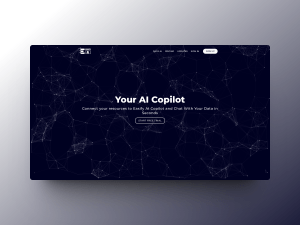The incorporation of artificial intelligence (AI) has evolved from a trend to a strategic necessity for competitiveness and sustainable growth in the quickly changing business landscape. Using AI strategies for the future of business has proven to be a critical success factor for businesses looking to stay ahead of the curve. This thorough investigation explores the different aspects of AI strategies and how they can help businesses grow in the ever-changing business environment.
AI Strategies for the Future of Business
Recognizing AI’s Contribution to Business Growth
Artificial intelligence is a revolutionary force that has the power to completely change how businesses run, make decisions, and engage with their clientele. It is more than just a technical breakthrough. Artificial intelligence is fundamentally about analyzing large amounts of data, extracting useful insights, automating tasks, and increasing productivity.
Data-Driven Decision Making: AI Strategies’ Basis
Effective AI strategies place a strong emphasis on making decisions based on data. Businesses can gain valuable insights from their data by utilizing machine learning algorithms, which facilitate strategic and well-informed decision-making. This data-centric approach finds new growth opportunities while minimizing risks.
Customisation and Improving the Customer Experience
AI is essential to improving customer experiences by facilitating tailored interactions. Artificial intelligence (AI) allows companies to customise their products and services based on the preferences of specific customers, from recommendation engines to chatbots and virtual assistants. In addition to encouraging consumer loyalty, this personalisation improves the perception of the brand as a whole, which directly supports business expansion.
Automation to Boost Efficiency in Operations
AI strategies are based mostly on automation, particularly for repetitive and routine tasks. Businesses can increase efficiency, cut expenses, and better allocate resources by automating manual processes. Employee concentration can be directed towards higher-value tasks as a result of this efficiency gain, which promotes innovation and advances the organization’s overall growth.
Using Predictive Analytics to Forecast Trends
AI-powered predictive analytics gives companies the ability to foresee consumer and market trends. AI systems can predict future trends by evaluating past data, which gives organizations the ability to proactively modify their strategies. In addition to putting companies ahead of the competition, this insight makes it easier for them to react more quickly to shifting market conditions.
AI in Sales and Marketing: Increasing Revenue
AI techniques play a key role in sales and marketing, maximising the acquisition and retention of customers. AI improves the efficiency of marketing and sales initiatives with everything from lead generation and targeted advertising to predictive analytics for sales forecasting. Not only is efficiency raised as a result, but revenue growth is also positively impacted.
Cybersecurity: Protecting Company Resources
AI tactics can support cybersecurity measures at a time when data security is crucial. Artificial intelligence (AI)-powered algorithms strengthen a company’s digital infrastructure by quickly identifying and addressing possible security risks. This preserves not just sensitive data but also stakeholders’ and customers’ trust, all of which are essential for long-term company success.
Workforce optimisation and talent acquisition
AI tactics go beyond implementing technology to include human resource optimisation. AI helps to create a dynamic and high-performing workforce through workforce analytics that increase employee productivity and AI-driven recruitment processes that find top talent. The maintenance of business growth is significantly dependent on this strategic approach to talent management.
Businesses must integrate AI strategies if they hope to survive and grow—it’s not just an option. The utilization of artificial intelligence (AI) in data analysis, decision-making, personalization, process automation, and cybersecurity fortification offers a comprehensive strategy for managing future complexity. Companies that strategically use AI are not only prepared for the future but also have a strong foundation for long-term growth in a market that is becoming more and more competitive. Adopting AI strategies is a strategic necessity for companies that see growth and success ahead of them, not just a technical advancement as they navigate the future.


